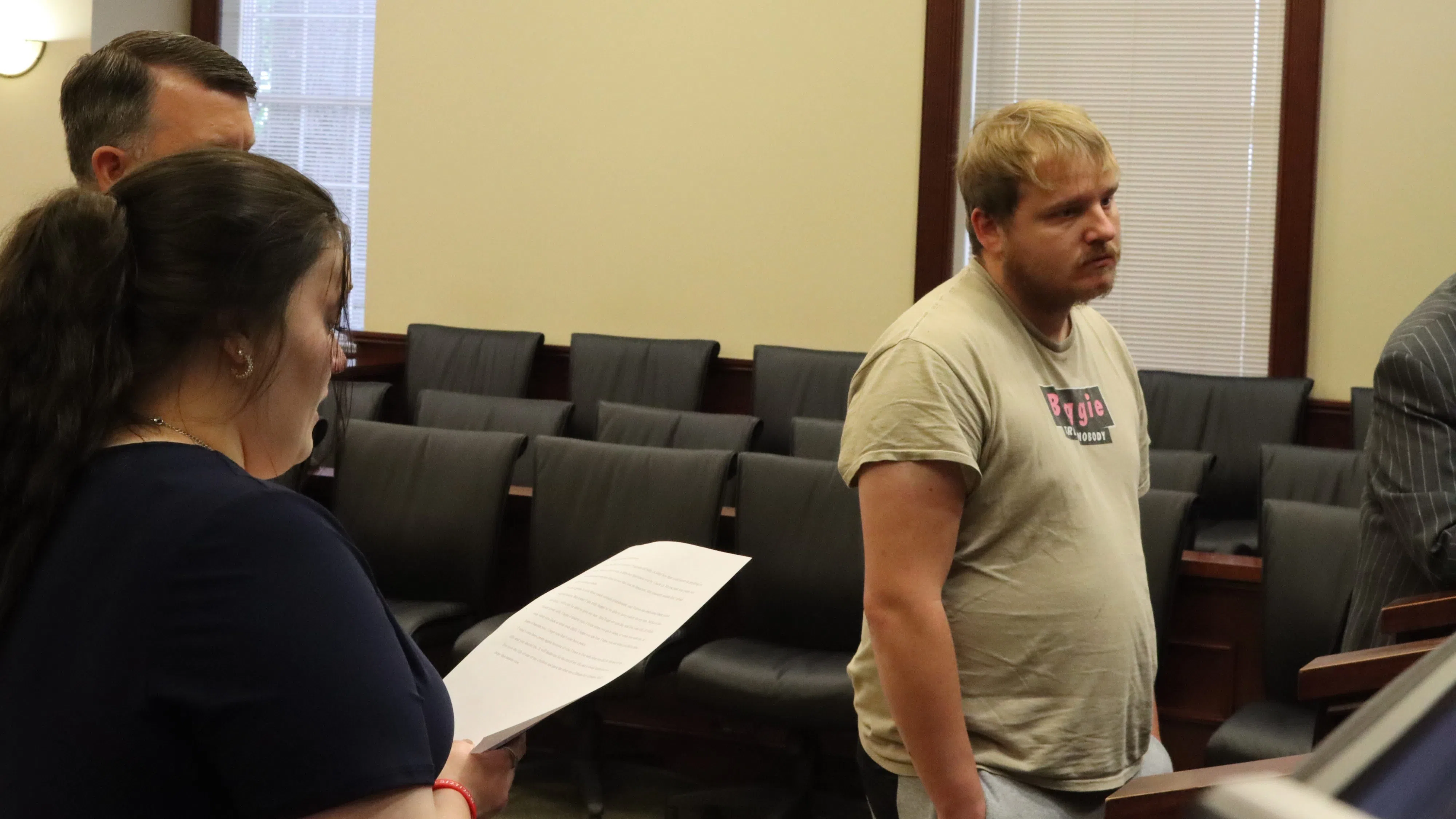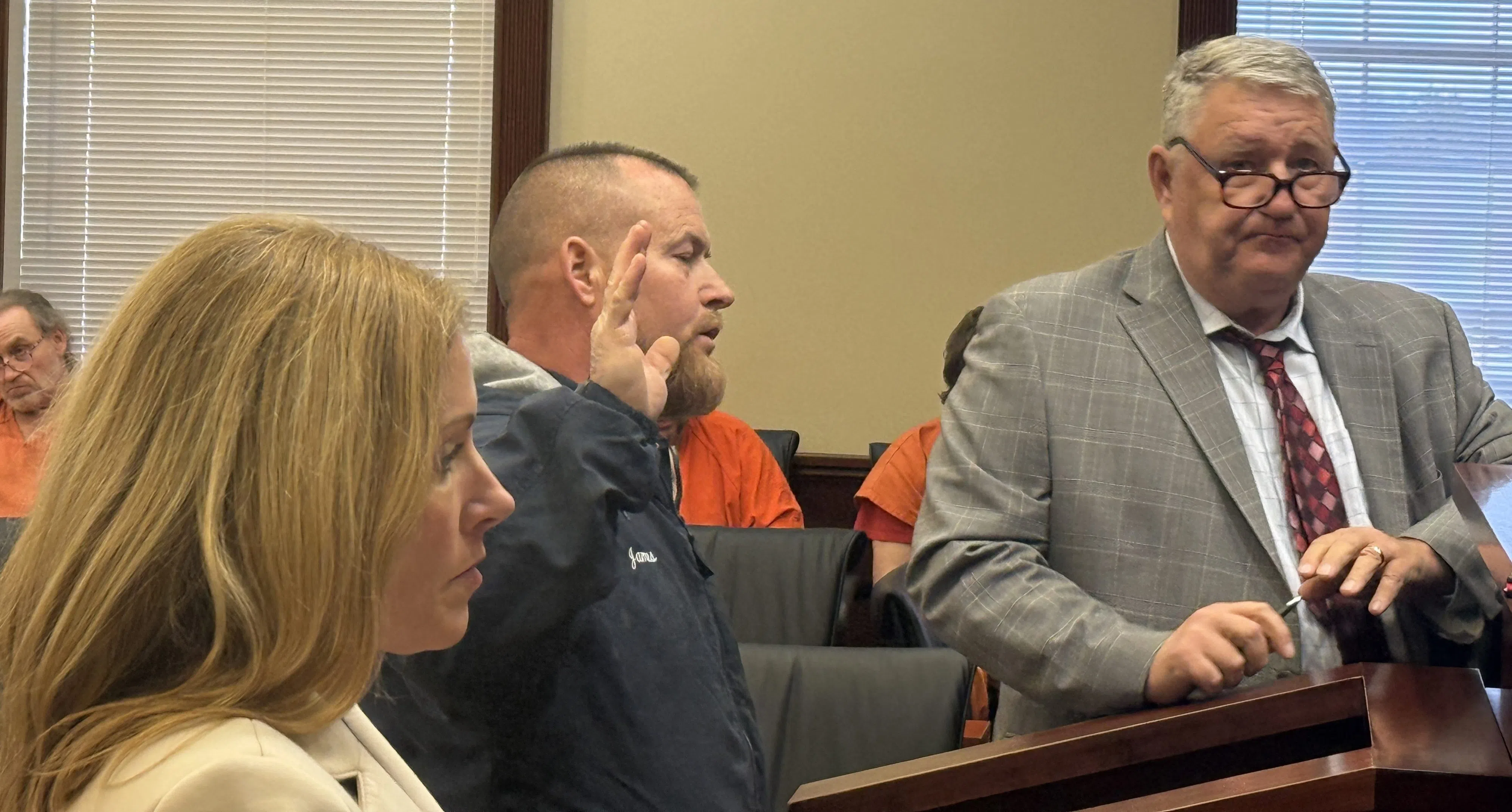By MELINDA J. OVERSTREET
for Glasgow News 1
A little more than four years after a 19-month-old child died while in the care of someone who had been a family friend and a person with whom that friend was romantically involved, one of those people has been sentenced to seven years of imprisonment. With credit for time served and depending upon his classification for parole eligibility, though, he may not have to spend much more time in custody.
A trial had been scheduled to begin in March for Devin Pierce, now 25, and Serenity Brown, now 22, who were charged with murder in relation to the March 27, 2021, death of the child, whom the commonwealth has declined to name. That evening, emergency personnel responded to a call about an unresponsive child, who was transported to T.J. Samson Community Hospital and later pronounced deceased. An autopsy was performed after detectives observed “suspicious bruising” on the child’s head.
“The results of the autopsy determined the child died from blunt impact injuries of the head, and the manner of death was ruled homicide,” according to a press release from the Barren County Sheriff’s Office at the time.
Just days before the start of the trial, Pierce decided to plead guilty to the lesser charge of second-degree manslaughter as part of a plea agreement. His final sentencing was Monday.
The child’s mother read what is known as a victim’s impact statement during Monday’s proceeding before Circuit Judge John T. Alexander, with Pierce standing just a few feet in front of her with his attorney.
The statement was also provided in writing as part of the court record.
“You took the life of an innocent 19-month-old baby,” Carson Stinson said, crying and pausing as she expelled a deep breath, “a little boy that could never do anything to warrant what you did to him, a little boy that knew you by ‘Uncle D.’”
She went on to state that for four years, Pierce convinced everyone close to him that he was innocent, “but innocent people don’t plead guilty to killing a baby.”
Stinson said he’d had four years without punishment and Tristen had been dead those years without justice.
“I am truly happy today to be able to have justice for my son,” she said. “Justice is the last thing that I will ever be able to give my son. You will get out one day and live your life while Tristen never will, and I hope that haunts you when you go to sleep or when you wake up or even when you look at your own child. I hope you see him. I hope you see what you did to him, and I hope it haunts you. I hope you never have peace. I won’t ever have peace again because of what you did.”
She said she would have to live with what he did for the rest of her life, and it will haunt her, so she wanted the same for him.
“You took the life of one of my children and gave the other one a lifetime full of trauma, and I hope that haunts you,” Stinson said.
After she had returned to her seat in the gallery, where she was accompanied by Tristan’s father and other family members and friends, Alexander said that if the parties were OK with it, he would spare them the litany of information he had covered when Pierce entered his new plea, as they were already part of the record, and they would be included in the sentencing order.
Second-degree manslaughter is a Class C felony that carries a sentencing range of five to 10 years. In exchange for his plea, the commonwealth agreed to recommend a sentence of seven years, and the judge said Monday that would be the sentence he would impose.
A verdict of guilty on the wanton murder charge would have carried a sentence of 20 to 50 years or life in prison.
Part of the “litany” to which Alexander referred included the following, which Glasgow News 1 previously reported: “The seven-year sentence would be subject to the following: No. 1, everybody agrees that your all’s discussion has, in part, revolved around the fact that you expect parole eligibility to be controlled by the law as it existed at the time of the offense, as opposed to the way that they amended that some three or so years after the offense date. So that would mean that you would be eligible to be considered for parole after serving 20 percent of your sentence,” the judge said. “That is – I guess the way to put it would be – a material factor in the decision that’s being made.”
Alexander said that he would memorialize that expectation in the record, but, if that were to be ignored and the parole eligibility were to be calculated with some different percentage, Pierce would have 60 days to get a motion filed asking for his plea to be vacated (reversed). The judge said it was his understanding that the commonwealth would not oppose that motion if it should occur, and Commonwealth’s Attorney John Gardner agreed that was correct.
Gardner had told GN1 in March that under the new law, a conviction on the same crime would have required the defendant to serve 85 percent of the sentence before being eligible for parole. He added that there is a case precedent that indicates the law that was in effect at the time of an offense is the one that would be observed in this matter.
As the proceeding concluded, the judge instructed Pierce to have a seat over near the court security officers, and he was placed in custody right away and later booked back into the Barren County Detention Center.
According to the presentencing investigation report, Gardner told GN1, Pierce would be getting credit for 711 days already served actually in jail or with ankle monitoring. That’s 19 days shy of two years.
If Pierce is deemed eligible for parole after serving 20 percent of the seven years, which is 1.4 years, then he would already be eligible, though that doesn’t necessarily mean parole would be granted at this point.
Carson Stinson was involved with the mediation of the case attempted earlier and also in the discussions about the plea agreement, which was done with her consent, Gardner said.
Eighty-five percent of the seven years would require that he serve 5.95 years, minus the 711 days credited before parole eligibility, if the Department of Corrections should decide to go that route and if, in that case, Pierce didn’t withdraw his plea.
Brown’s case is still pending, with a pretrial conference set in late July to allow time to see what happens with Pierce’s parole-eligibility classification.















Comments